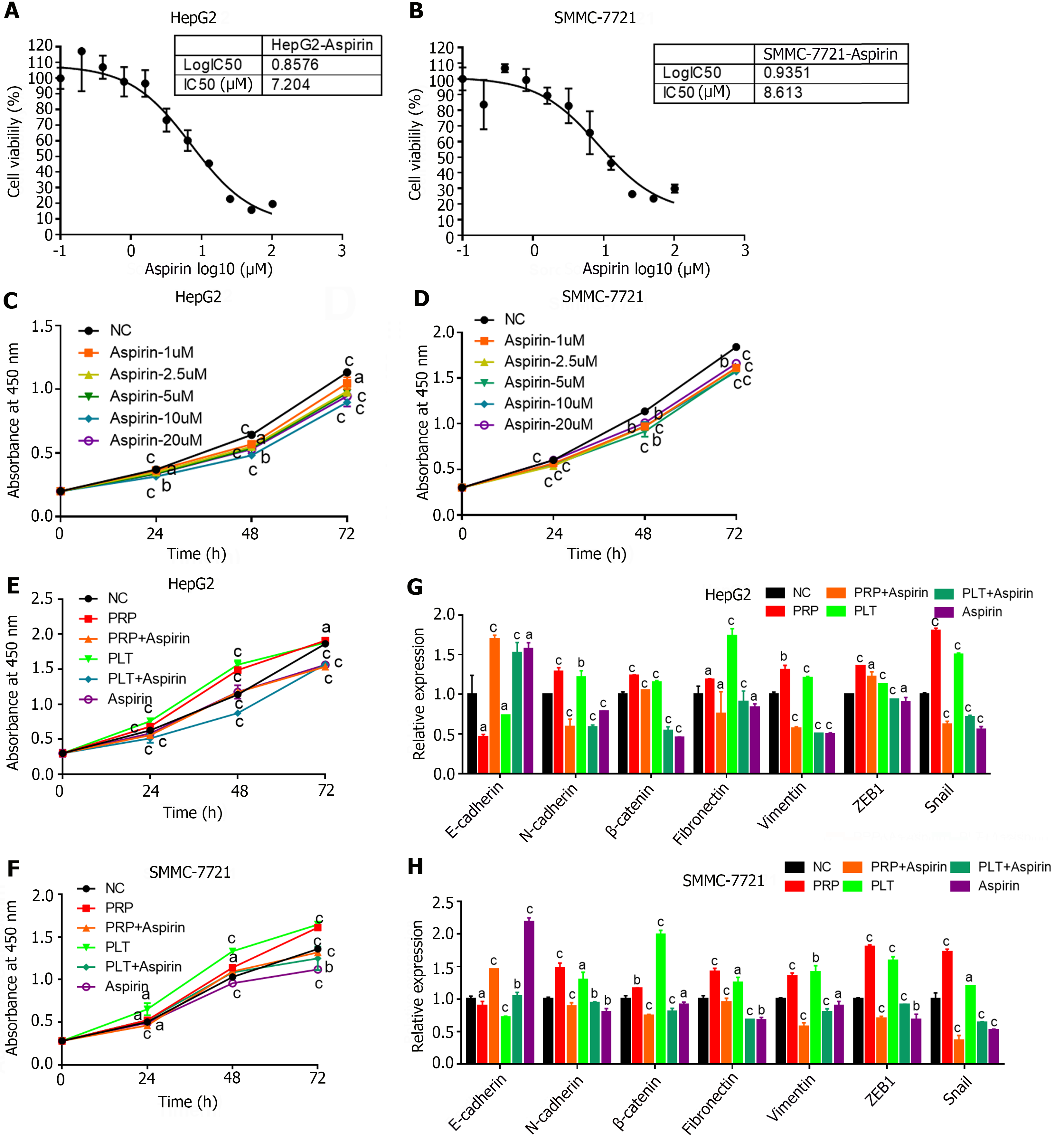Copyright
©The Author(s) 2024.
World J Gastrointest Oncol. Jun 15, 2024; 16(6): 2742-2756
Published online Jun 15, 2024. doi: 10.4251/wjgo.v16.i6.2742
Published online Jun 15, 2024. doi: 10.4251/wjgo.v16.i6.2742
Figure 5 Aspirin can inhibit hepatocellular carcinoma tumor growth and epithelial-mesenchymal transition by inhibiting platelet activity.
A and B: Cytotoxicity analysis of the IC50 of aspirin in HepG2 and SMMC-7721 cells; C and D: CCK8 analysis of the effects of different concentrations of aspirin on the proliferation of hepatocellular carcinoma (HCC) cells; E and F: CCK8 analysis to detect the effect of platelets and aspirin on the proliferation of HCC cells; G and H: Real time polymerase chain reaction was used to detect the effects of platelets and aspirin on epithelial-mesenchymal transition in HCC cells. The figure shows the mean ± SD of the experimental results, with asterisks denoting significant differences between the two groups (aP < 0.05, bP < 0.01, cP < 0.001). NC: Negative control; PPP: Platelet plasma; PRP: Platelet-rich plasma; FBS: Fetal bovine serum; PLT: Platelets.
- Citation: Zhao LJ, Wang ZY, Liu WT, Yu LL, Qi HN, Ren J, Zhang CG. Aspirin suppresses hepatocellular carcinoma progression by inhibiting platelet activity. World J Gastrointest Oncol 2024; 16(6): 2742-2756
- URL: https://www.wjgnet.com/1948-5204/full/v16/i6/2742.htm
- DOI: https://dx.doi.org/10.4251/wjgo.v16.i6.2742









